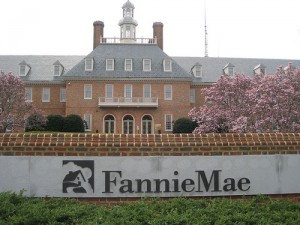Guidance Provided by Fannie Mae to Shorten Preforeclosure Time Lines
While I was in Washington, DC in April, the Federal Housing Finance Agency (FHFA) directed Fannie Mae and Freddie Mac to develop enhanced and coordinated strategies to facilitate short sales, deeds-in-lieu and deeds-for-lease in order to help more homeowners avoid foreclosure. On Thursday, April 26, Fannie Mae introduced its policies to expedite this process.
Per FNMA’s announcement, servicers must follow the policies for all conventional mortgage loans held in Fannie Mae’s portfolio, those securitized into Fannie Mae MBS pools, and those originally sold as a part of an MBS pool. These policies require Fannie Mae to establish maximum required response times for short sale offers submitted, require servicers to provide borrowers with status updates during this evaluation process, and allow servicers to respond to short sale offers without the requirement to evaluate a HAMP modification.
In March, Fannie also announced that in an effort to maintain a streamlined and efficient process, servicers must receive a complete “Borrower Response Package” to evaluate the borrower for foreclosure prevention alternatives. Fannie warns that the servicer should not request other documentation from the borrower, except in specific limited situations. This package consists of:
• A completed Uniform Borrower Assistance Form (Form 710),
• Income documentation as outlined in Form 710 based on income type,
• Hardship documentation as outlined in Form 710 based on hardship type, and
• A Short Form Request for Individual Tax Return Transcript (IRS Form 4506T-EZ) or a Request for Transcript of Tax Return (IRS Form 4506-T) signed by the borrower.
Additionally, Fannie Mae reminded servicers that federal income tax returns must not be requested from the borrower unless the borrower is self-employed or the borrower has rental income, as outlined in Form 710.
Fannie now states that when a servicer receives a “Borrower Response Package,” it must adhere to the following response timelines:
• If the servicer is unable to fully evaluate the borrower for a Fannie Mae HAFA short sale within 30 calendar days of receipt of a complete Borrower Response Package, the servicer must notify the borrower that the request is under review.
• Each week, the servicer must provide the borrower a status update indicating the reason(s) why the Evaluation Notice is pending. Status updates may verbal or in writing and must be documented.
• The servicer must send the Evaluation Notice no later than 60 days after receipt of the complete Borrower Response Package.
• If a revised offer is received in response to a counteroffer, the servicer must provide a response within 10 business days.
• If the offer does not meet or exceed the Minimum Acceptable Net Proceeds (MANP), the servicer must provide a counteroffer with the denial. The MANP must not be disclosed to interested parties to the transaction.
• The servicer must request a response to the counteroffer within five business days.
• If the revised offer does not meet the MANP but merits further consideration, the servicer must submit a request to Fannie Mae for review and decision within 10 business days after receipt.
But what happens if the servicer does not comply? Fannie Mae may pursue any of its available remedies, which include repurchase, “make whole,” or indemnification. You can read more about the specifics to these changes HERE. To see exactly what is required in the Borrower Response Package CLICK HERE.
This post was reprinted with permission from Amy Swaney’s blog.
